What Makes Closed Cell Spray Foam the Best Choice for Insulation in Paris, TX?
When it comes to protecting our homes and buildings in Paris, TX, insulation plays a huge role in keeping indoor spaces comfortable and energy efficient. At 903 Spray Foam, we’ve worked with many clients who wanted to fix problems like high energy bills, inconsistent room temperatures, and even small leaks around doors and windows. The solution often comes down to choosing the right insulation product.
There are two types of spray foam available: open cell and closed cell spray foam. While both are effective, closed cell spray foam stands out because of its superior strength, resistance to moisture, and higher r value. Its low density cousin, open cell spray foam, is softer and better suited for soundproofing.
What we’ve seen over the years is that people don’t always know how to measure the effectiveness of insulation. That’s where we come in—to help you make informed decisions based on performance, longevity, and return on investment. Now, let’s dive into the key reasons closed cell spray foam is such a reliable option for Texas properties.
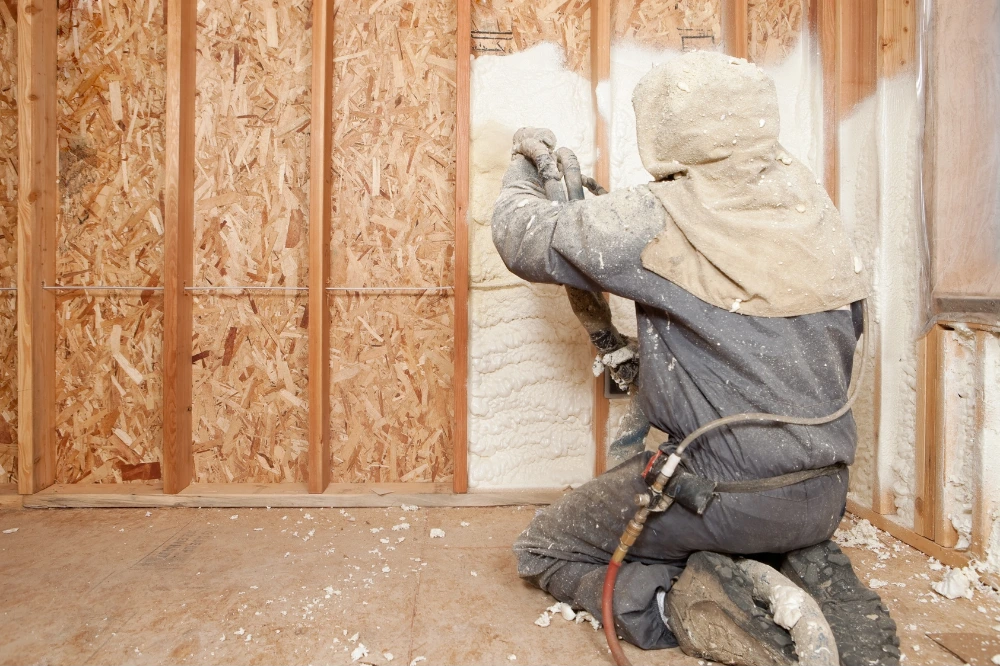
Why Is Closed Cell Spray Foam a Top Choice for Insulation in Paris, TX?
In a climate like Paris, TX, insulation is not just an option—it’s a necessity. With hot summers and cool winters, choosing the right material for your home or business makes a big difference in comfort and energy bills. Closed cell spray foam offers a combination of strength, efficiency, and protection that few other products can match. At 903 Spray Foam, we’ve seen firsthand how this product can make homes more comfortable and energy efficient.
Closed cell spray foam is known for its dense structure, which helps create a tight air barrier that keeps conditioned air in and unconditioned air out. The result is better energy efficiency and lower utility costs.
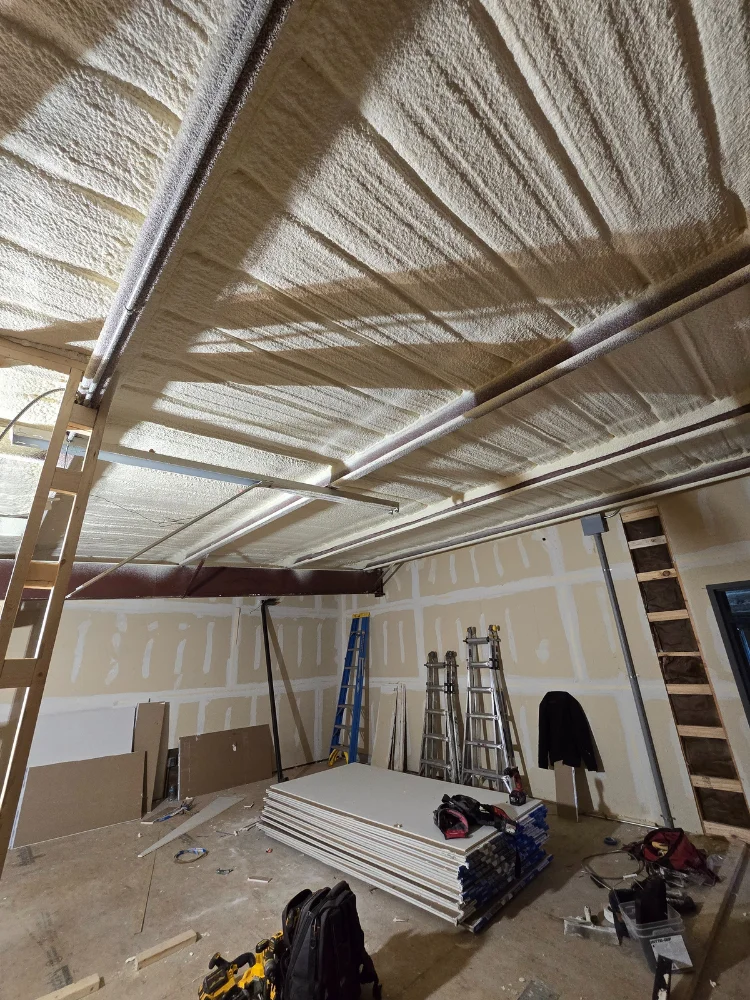
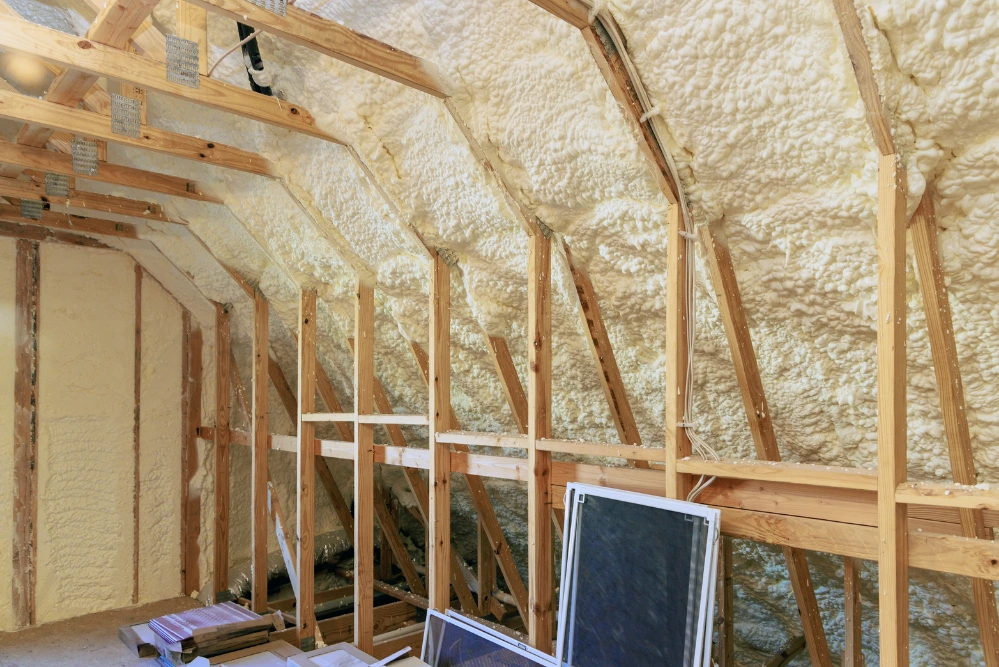
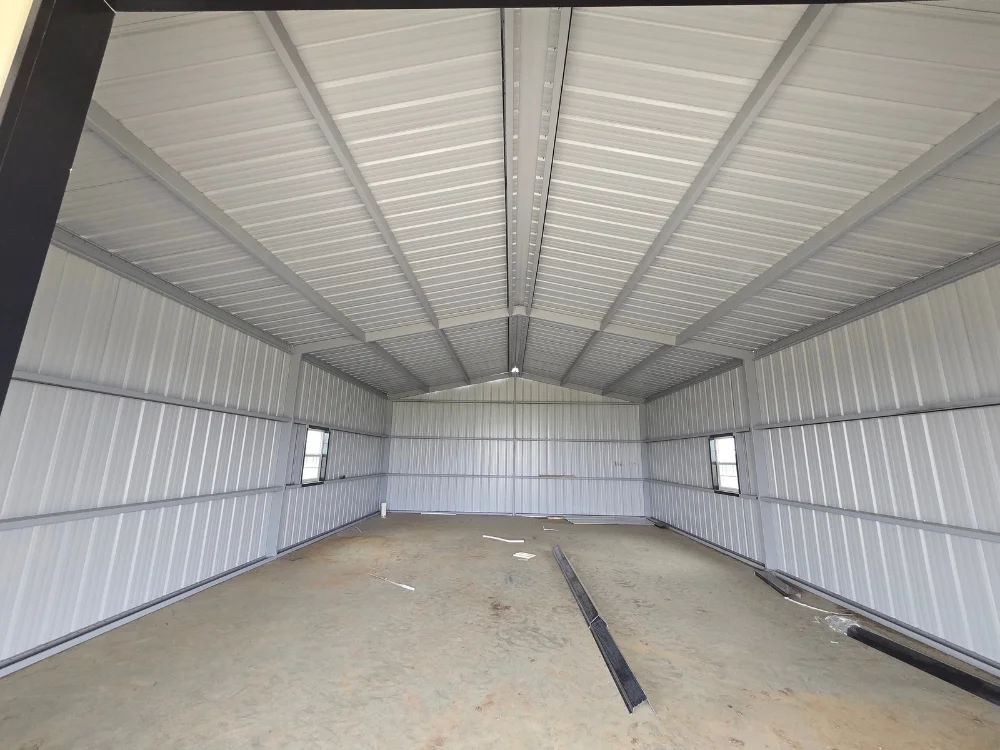
How Does Closed Cell Spray Foam Work as an Air Barrier?
A well-sealed building envelope is critical to preventing air leakage, which leads to high energy costs and uneven temperatures. Closed cell spray foam expands to fill small cracks and gaps, creating an airtight seal in places other insulation materials often miss.
It also acts as a vapor barrier, reducing moisture vapor transmission, which can help protect against mold and mildew growth. Unlike fiberglass insulation, it doesn't settle or sag over time, maintaining long-term performance.
What Is the Difference Between Closed Cell Foam and Open Cell Spray Foam?
How Does Density Affect Thermal Performance?
Closed cell foam is much denser than open cell foam, which means it provides higher r value per inch of thickness. This makes it better at reducing heat transfer and maintaining thermal insulation.
Which Applications Suit Each Type Best?
Open cell spray foam is great for interior use where flexibility and sound dampening are key. Meanwhile, closed cell spray foam is better for both residential applications and commercial buildings that need maximum durability and water resistance.
What About Moisture Vapor and Air Seal Benefits?
Closed cell solutions are more resistant to moisture vapor and form a better air seal than open cell foam. This makes them ideal for crawl spaces, roofs, interior walls, and exterior applications.
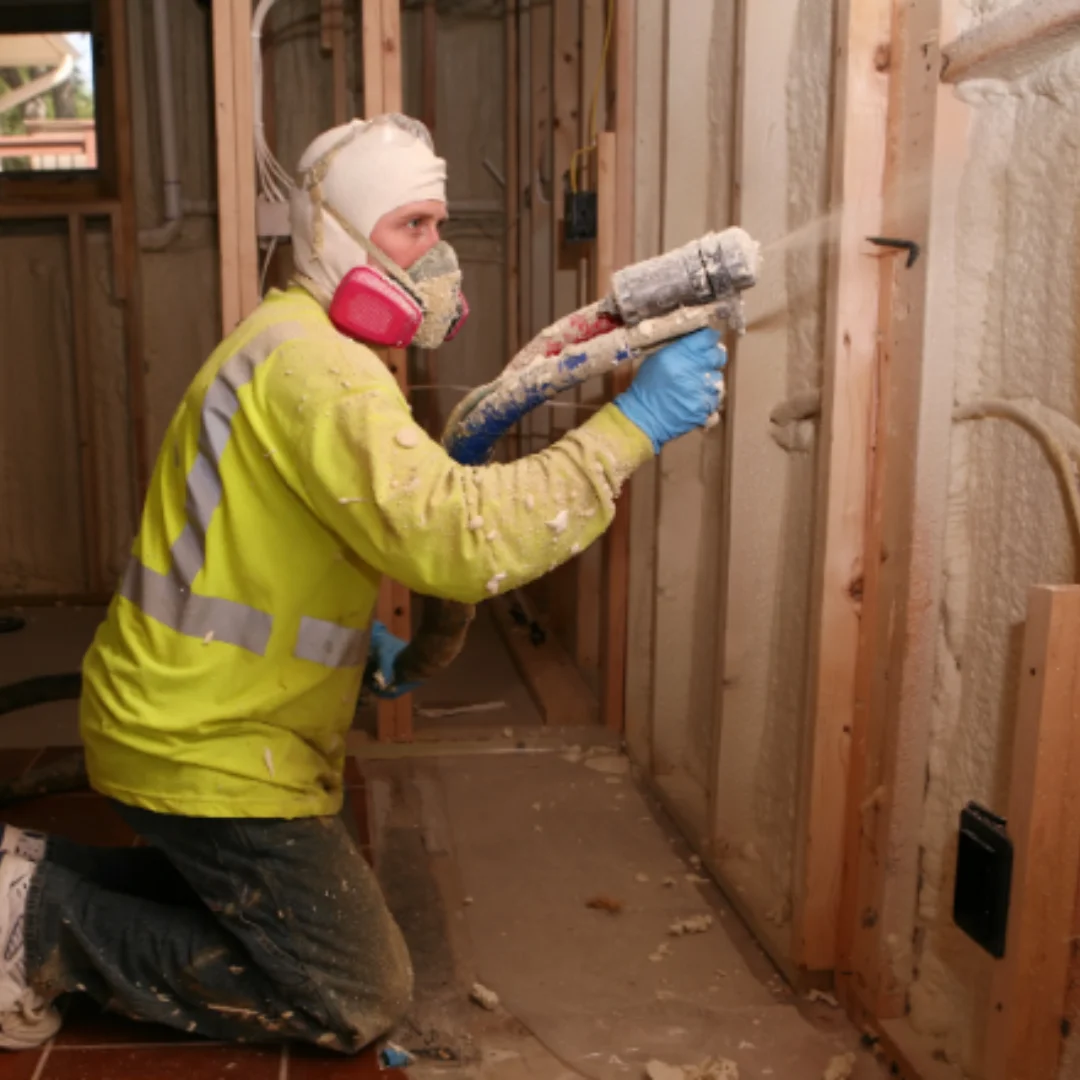
What Are the Advantages of Using Cell Spray Foam in Crawl Spaces and Attics?
Crawl spaces are common problem areas where air leakage, humidity, and pests can be a serious issue. Using cell spray foam in these areas offers an airtight seal and thermal protection, keeping temperatures stable year-round.
In attics, spray foam insulation prevents heat buildup in summer, lowering HVAC load and improving comfort. Its ability to cover every surface makes it one of the most energy efficient options.
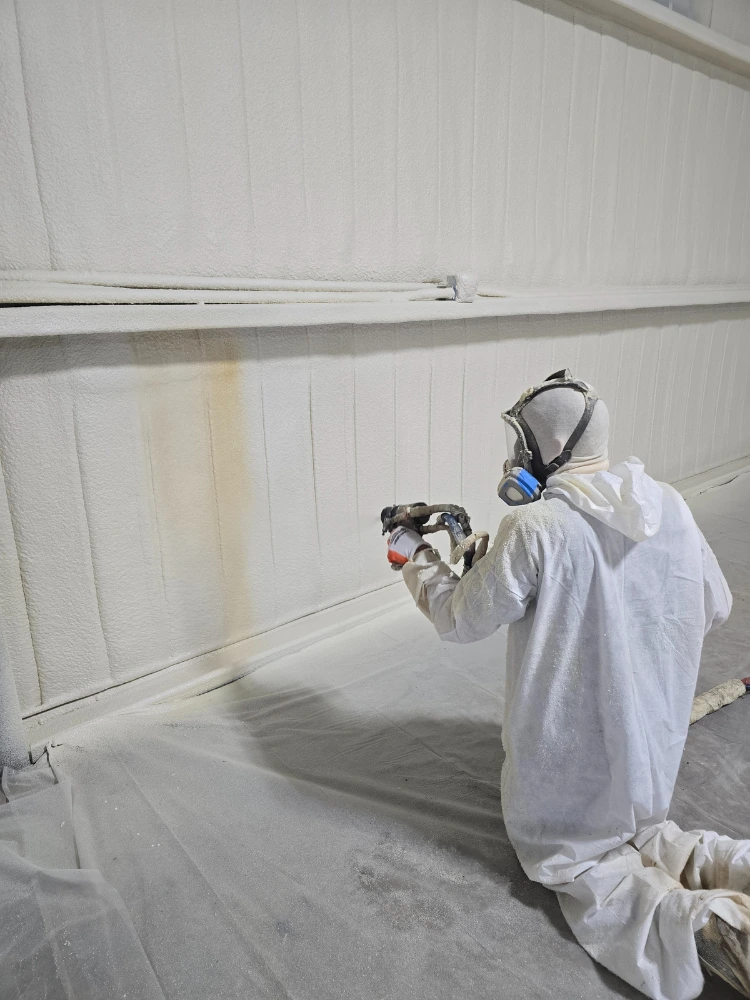
How Does Closed Cell Spray Foam Deliver High Performance in All Climates?
Whether it’s scorching heat or an unexpected freeze, closed cell spray delivers consistent insulation. With one of the highest r values available, it maintains its thermal insulation properties even in extreme temperature swings. Its rigid structure adds strength to walls and ceilings, increasing overall building integrity. The foam also provides good soundproofing and can be used in fire-rated assemblies with proper material selection.
Why Is Foam Insulation the Ideal Choice for Residential and Commercial Projects in Texas?
From homes to warehouses, foam insulation offers the kind of adaptability that other materials don’t. It can be used in floors, walls, roofs, and ceilings to create a comprehensive insulation system. Thanks to its adhesion, closed cell spray foam sticks to virtually any surface, making it useful in new construction or renovation work. Plus, it meets building code requirements for vapor control and fire protection.
How Do Closed Cell Spray Foam and Other Materials Compare on R Value and Heat Transfer?
When compared to materials like fiberglass insulation or cellulose, spray polyurethane foam easily outperforms them in terms of r value, reducing heat transfer dramatically. That means better energy savings and a more consistent indoor temperature throughout the year.
What Makes Closed Cell Spray Foam the Best Option for Energy Savings and Efficiency?
A properly insulated home can save money on energy bills every month. Because closed cell spray foam creates a continuous air barrier, it minimizes air leakage and allows your HVAC system to work less.
In a city like Paris, TX, where summers are hot and winters are unpredictable, improving energy efficiency with closed cell polyurethane foams is one of the smartest long-term investments.
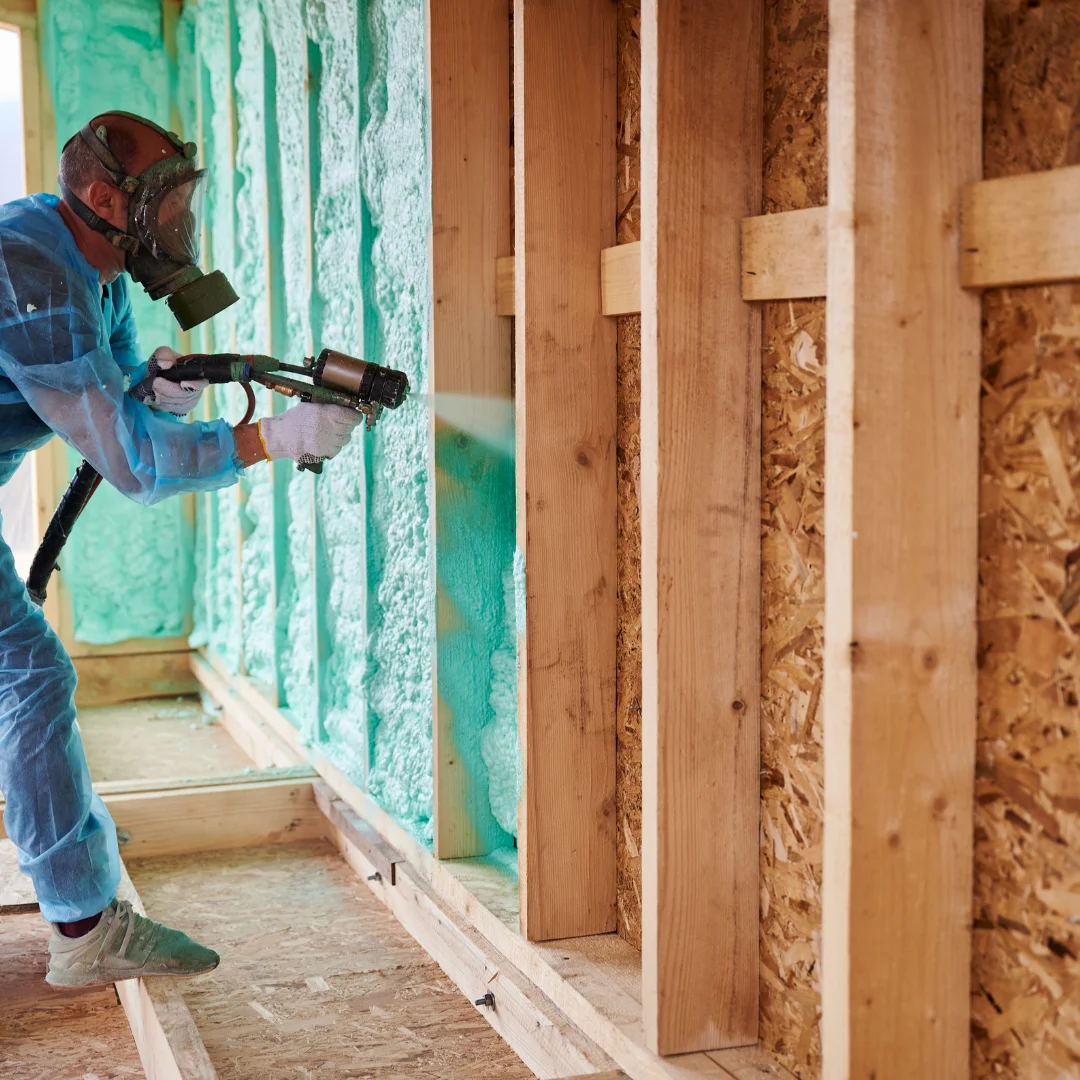

Can Closed Cell Spray Foam Be Used for Soundproofing and Fire Resistance?
Yes. While spray foam insulation is best known for thermal protection, it also reduces noise. It dampens vibrations between interior walls, ceilings, and floors, making it a solid choice for multi-use buildings.
With the right coating, it can also contribute to fire resistance. Many spray foam products are now rated to meet stringent fire safety codes when applied correctly.
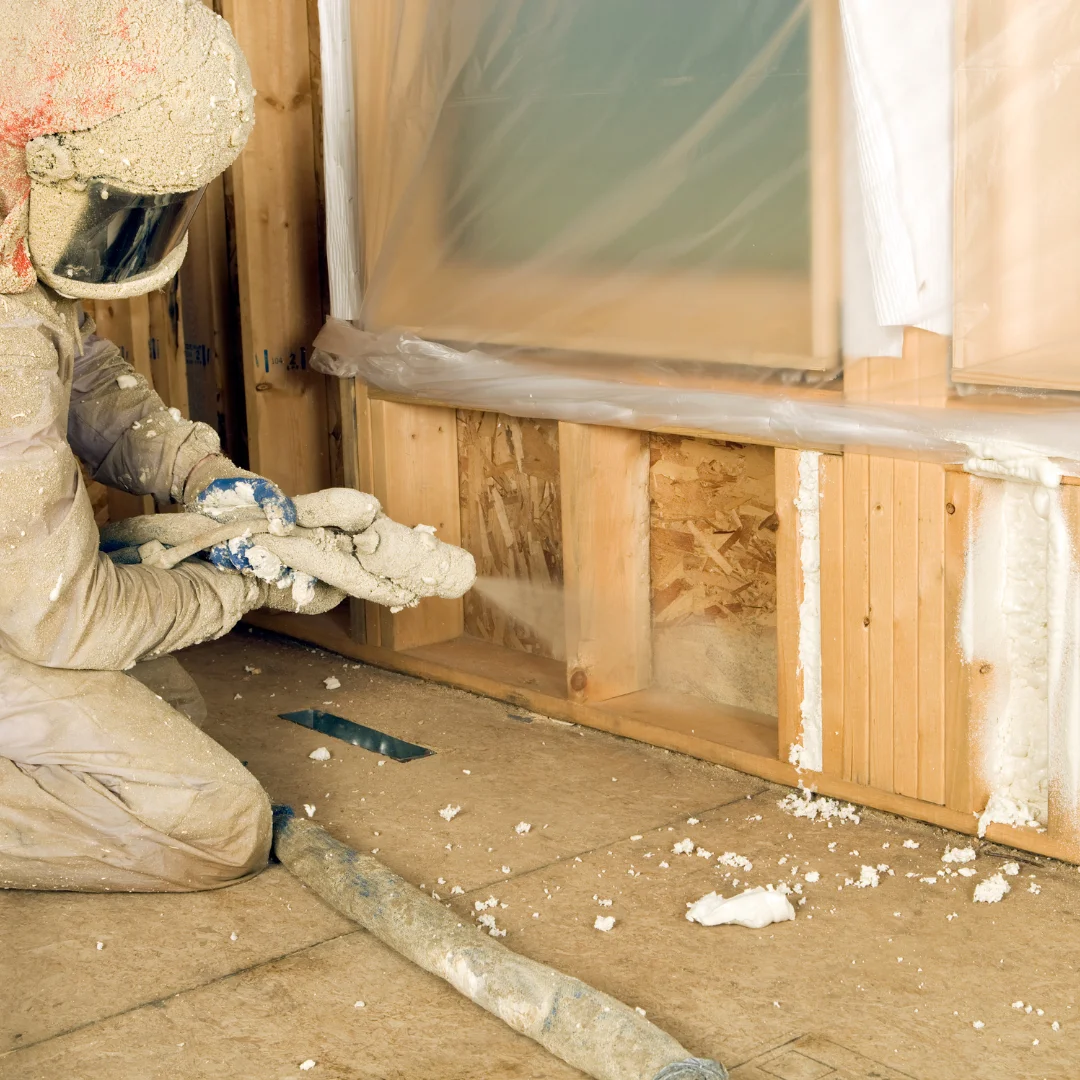
Where Can You Apply Closed Cell Foam in a Building?
Closed cell foam is incredibly versatile. You can apply it in:
Interior walls and ceilings for sound and temperature control
Roofs for UV and heat protection
Floors to prevent air leakage from crawl spaces
Exterior applications for weather resilience
From residential homes to industrial warehouses, the same kit and gun can be used for precise installation. That means fast application and full access to every part of the building envelope.

How Does Closed Cell Polyurethane Foam Contribute to Moisture Control and Vapor Retardation?
Humidity control is key in Texas. Closed cell polyurethane foams act as both an air seal and a vapor retarder, reducing the amount of moisture vapor that enters a building. This helps keep interiors dry and prevents mold development.
What Makes Closed Cell Foam One of the Highest R Value Insulation Types Available?
With up to R-7 per inch, closed cell spray foam holds one of the top spots for thermal resistance. That’s a major upgrade over traditional materials, helping homeowners and builders meet modern energy efficient standards with fewer inches of insulation.
Ready to Insulate Your Home or Business in Paris, TX?
If you’re building new, remodeling, or just need to improve energy efficiency, closed cell spray foam is the smart, long-lasting solution. At 903 Spray Foam, we bring professional expertise and top-tier materials to every job.
Call today to get a quote or schedule an assessment. Whether it’s residential, commercial, or industrial, we’re here to help you create a more energy efficient, comfortable, and protected space.
Final Thoughts
We believe in building smarter, healthier homes and businesses in Paris, TX. That’s why closed cell spray foam is a go-to choice for so many of our clients. It’s not just about insulation; it’s about value, protection, and peace of mind. With high r value, excellent moisture control, and proven energy savings, this product delivers real benefits you can feel year-round.
Frequently Asked Questions
What is the difference between open cell and closed cell spray foam?
Open cell spray foam is low density, soft, and flexible—great for soundproofing interior spaces. Closed cell spray foam is dense, rigid, and has a higher r value, making it ideal for insulation, moisture control, and added structural support.
How does closed cell spray foam help prevent air leaks?
It expands to fill every gap and crack, forming an airtight seal that prevents unwanted air leakage and helps reduce energy loss throughout the year.
Can closed cell spray foam be used in crawl spaces and attics?
Yes, it’s one of the most effective materials for insulating crawl spaces and attics, providing both thermal insulation and moisture control.
How does spray foam insulation improve energy efficiency?
By forming a continuous air barrier and offering one of the highest r values, closed cell spray foam reduces HVAC strain and helps save money on energy bills.
Is closed cell spray foam suitable for commercial buildings?
Absolutely. Its high durability, vapor barrier properties, and strong adhesion make it ideal for both residential and commercial construction projects.
What makes closed cell spray foam a high-performance insulation material?
Its closed cell structure resists moisture vapor, adds structural integrity, and delivers consistent performance across a wide temperature range.
Can it help reduce noise inside a building?
Yes. While not as soft as open cell foam, closed cell spray foam still offers good soundproofing for walls, floors, and ceilings.
What is the r value of closed cell spray foam?
Typically, closed cell polyurethane foams offer around R-6 to R-7 per inch, providing superior thermal insulation compared to materials like fiberglass insulation.
Does closed cell spray foam add fire resistance to my building?
When installed with the proper fire-rated materials or coatings, spray foam insulation can meet building codes for fire safety in both residential and industrial settings.
How do I know if closed cell spray foam is right for my property in Paris, TX?
You should look at your goals: do you want to reduce heat transfer, block moisture vapor, or improve overall energy efficiency? If yes, closed cell spray foam is likely the ideal choice.
Work Cited:
U.S. Department of Energy. "Insulation." Energy.gov, https://www.energy.gov/energysaver/weatherize/insulation. Accessed 28 May 2025
Environmental Protection Agency. "Moisture Control Guidance for Building Design, Construction and Maintenance." EPA.gov, https://www.epa.gov. Accessed 28 May 2025.
Building Science Corporation. "Spray Foam Insulation." buildingscience.com, https://www.buildingscience.com/documents. Accessed 28 May 2025.
Oak Ridge National Laboratory. "Thermal Performance of Building Envelopes." ornl.gov, https://web.ornl.gov/sci/buildings. Accessed 28 May 2025.
International Association of Certified Home Inspectors. "Spray Foam Insulation: Types and Advantages." nachi.org, https://www.nachi.org/spray-foam-insulation. Accessed 28 May 2025.
Top Links
Locations
Contact Us
Email: [email protected]
Address: 118 Private Rd 33082, Sumner, TX 75486
Business Hours
Monday 8AM-5PM
Tuesday 8AM-5PM
Wednesday 8AM-5PM
Thursday 8AM-5PM
Friday 8AM-5PM
Saturday 8AM-12PM
Sunday Closed
Copyright © 2025 903 Spray Foam. All rights reserved.
